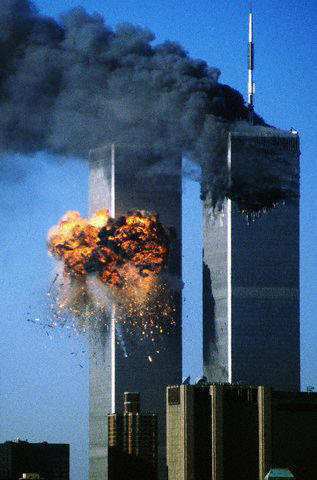Like just about everyone else, I remember where I was on the day the
Later on, the strangeness of the circumstances in which I learned about the attacks seemed, itself, to become part of what they meant to me. Perhaps this was no more than an example of the mind’s obstinate habit of trying to find order in every chaos that confronts it (or perhaps September 11 was one of those days that infects the way in which you think about more or less everything). So for example Caravaggio’s life story, on which I had been working, suddenly started seeming unexpectedly topical: in particular his involvement with the Knights of Malta – a medieval Christian equivalent of the Al-Quaeda organisation, who took it upon themselves to strike at random against Moslim civilians, killing and enslaving “the infidel” in the name of the one true faith. After September 11, such backwaters of the dim and distant history of East-West conflict seemed much less remote than before. The

September 11 and Art
11-09-2001

